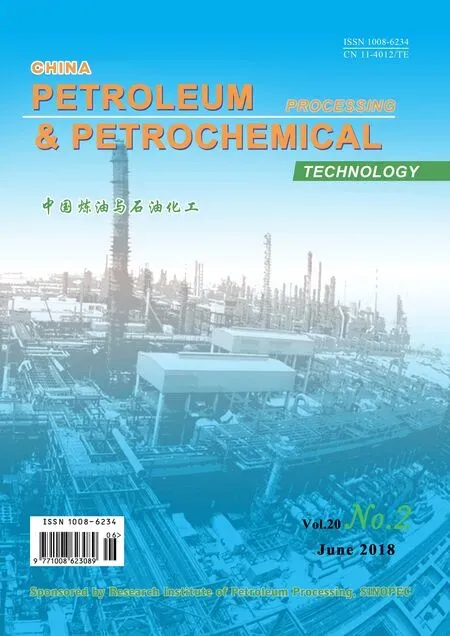RHT-200 Series Resid Hydrotreating Catalysts Developed by SINOPEC Research Institute of Petroleum Processing Passed Appraisal
The new-generation RHT-200 series resid hydrotreating catalysts developed by the SINOPEC Research Institute of Petroleum Processing (RIPP) has passed the technical appraisal organized by the Science and Technology Division of Sinopec Corp. Since the packing density of the said RHT-200 series resid hydrotreating catalysts has been reduced by 20% as compared to that of the previous generation catalysts, the demetalltion and metal tolerance ability along with the carbon residue conversion performance of these catalysts have been improved to different degree, resulting in obviuos enhancement of the competitive edge of these resid hydrotreating catalysts. The experts attending the appraisal meeting have made proposal on dissemination of these catalysts as soon as possible.
The resid hydrotreating technology is an effective means for realization of clean production and full utilization of oil resources. The third-generation resid hydrotreating catalysts dveloped by RIPP have been applied more than 60 times in 16 hydrotreating units located both inside and outside of China to create remarkable economic benefits to the users. In an attempt to further enhance the market competitiveness of the said catalysts, the research staffs, after having been engaging in the preparation of novel starting materials, the development of an unique carrier forming process and the optimization of catalyst preparation method, have successfully developed the said RHT-200 series resid hydrotreating catalysts, including the RDM and the RCS series catalysts.
The pilot test results have revealed that upon using the Maoming residue and the WEPEC’s AR with high sulfur content as the feedstocks, both the activity and stability of the said RHT-200 series resid hydrotreating catalysts are better than those of the third-generation RHT series catalysts. Upon using the residue feedstocks delivered from the Maoming, Jinshang, Jingmen and Changling refineries, these catalysts still demonstrated good adaptability to different residues, and the hydrotreated streams can serve as qualified feestocks for the RFCC uits. Currently this new technology has applied for 20 Chinese patents to enjoy independent intellectual property rights, which can provide reliable technical support for the more efficient utilization of heavy oil resources.
- 中国炼油与石油化工的其它文章
- Two Project on Preparation of Oilfield Chemicals Envisaged in SINOPEC’s Plan Have Passed Technical Appraisal and Assessment
- Green Technology for Preparation of High-Efficiency Ultrastable Zeolite and Catalysts Developed by RIPP
- Dalian Institute of Chemical Physics Made Progress in Study on Controllable Post-treatment of Si-Al Zeolite
- Contract on First-in-World 0.5 Mt/a Syngas-to-Ethanol Unit Signed
- Catalyst for Manufacture of Liner α-Olefins via Selective Hydrogenation of CO2 Developed by Dalian Institute of Chemical Physics
- Anhui Huayi Company to Apply XNC-98 Catalyst for Methanol Synthesis

